Latest NRAO News
News is managed by NRAO News & Public Information. Questions about News? Have a story to share? Want to interview a scientist or create new media about our telescopes?
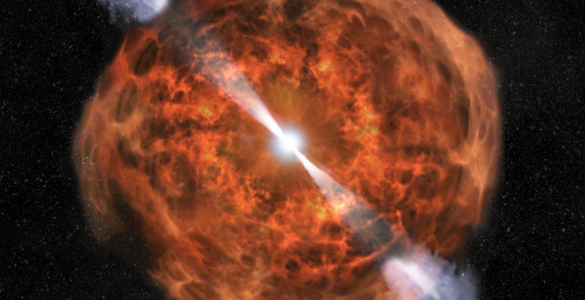
The National Radio Astronomy Observatory congratulates four astronomers who earned Breakthrough Prize Foundation awards for their outstanding research on a collision between two neutron stars. Their work made extensive use of the VLA and VLBA.
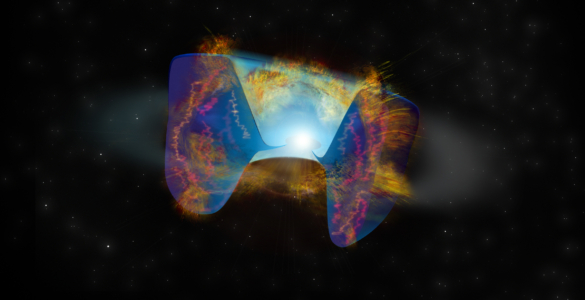
The Very Large Array Sky Survey gave astronomers the first clue that ultimately revealed a dramatic story — the remnant of a star that exploded long ago had plunged into the core of its companion star causing it, too, to explode as a supernova.

The National Radio Astronomy Observatory has named Dr. Patricia (Trish) Henning as its next Assistant Director for New Mexico Operations. In that role, she will lead the operations of the Very Large Array, the Very Long Baseline Array, and the Domenici Science Operations Center in Socorro, NM.
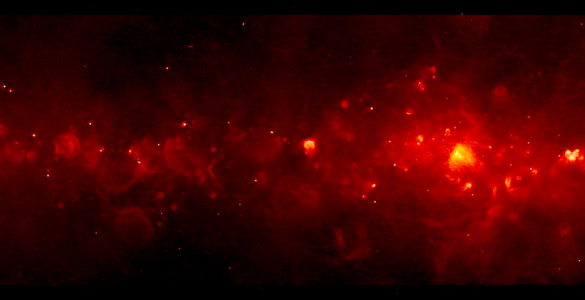
A new survey of our home galaxy, the Milky Way, combines the capabilities of the Very Large Array and the Effelsberg telescope in Germany to provide astronomers with valuable new insights into how stars much more massive than the Sun are formed.
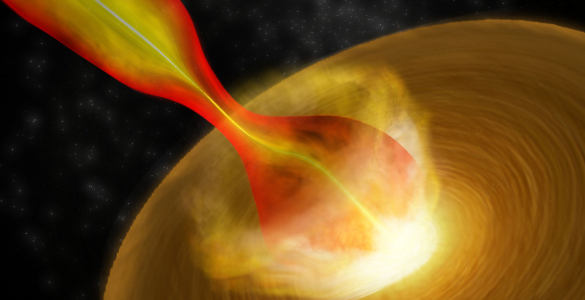
A highly-detailed VLA image indicates that the jets of material propelled outward by young stars much more massive than the Sun may be very different from those ejected by less-massive young stars.
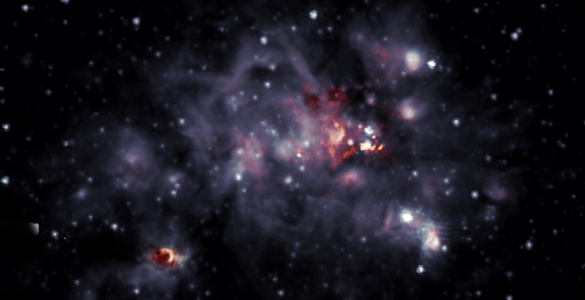
New, high-resolution VLA images of a giant molecular cloud where new stars are being born show changes since a set of observations made more than two decades ago. Tracking changes in this region over time can reveal new details about the process of star formation and the interactions of outflows from young stars.

The Very Large Array can’t image a big section of sky all at once. Instead, it must scan the sky over time. The VLA Sky Survey is using this method to create a map of nearly 80% of the observable sky. Join our host Summer Ash of the National Radio Astronomy Observatory as she talks about how the VLA is taking the time to see the big picture of the radio sky.
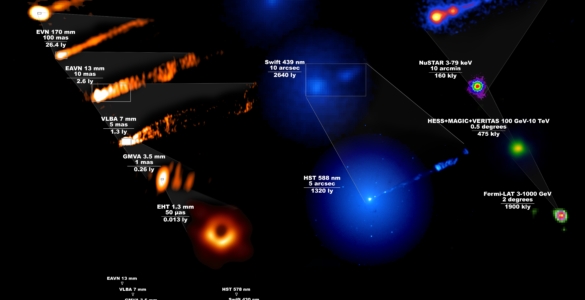
New multi-wavelength observations mounted by the Event Horizon Telescope (EHT) collaboration across the entire electromagnetic spectrum have provided new insight into the impact of the black hole at the core of galaxy M87 on its immediate, and not so immediate, surroundings.
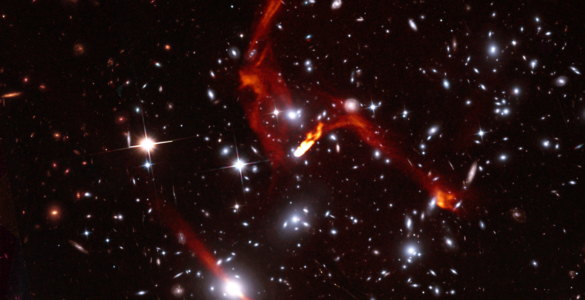
Astronomers using the VLA took advantage of the gravitational lensing provided by a distant cluster of galaxies to detect an even more-distant galaxy that probably is the faintest radio-emitting object ever found.
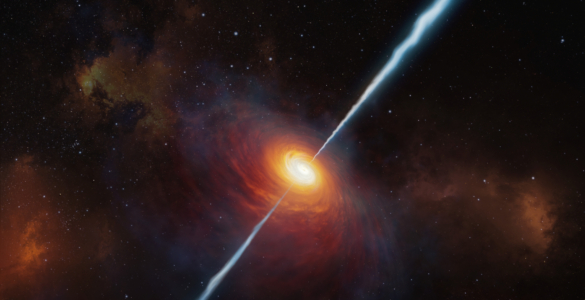
Astronomers using the VLA and VLBA have found the most distant cosmic jet yet discovered, material propelled at nearly the speed of light by a supermassive black hole in the core of a galaxy some 13 billion light-years from Earth.





